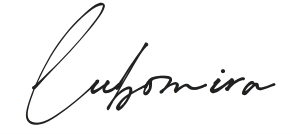In his book The Psychologist’s Eat-Anything Diet, Dr. Leonard Pearson speaks of food liberation, and essentially, the importance of listening to our body. And today I’ll share with you a very interesting concept in his book, which speaks of humming foods and beckoning foods – as this is one easy way to help you with creating food awareness, to tune into body and listen to what it may need in a particular day.
I am someone who has always believed that our bodies know best, and if we can truly listen to them, and I mean really listen and understand the actual messages they give us, then we’ll have more food awareness and be overall healthier. I believe in balance, always, and that even a so-called healthy food can become unhealthy if in excess or over-indulged in; and simultaneously, you shouldn’t deny yourself some chocolate when your body needs it, as long as of course you don’t eat a whole one kilogram box of chocolates, which may not really serve you well in a few hours.
Obviously – all this comes with a very important note, which is: How well can we actually understand what our body needs? We are creatures of habit, and our bodies carry many memories – so often times, they may not even need a certain food, but because we’ve gotten so used to it for so long, and it’s been helpful to us during a particular phase of our lives, our bodies may think we still need it. So it might feel quite uncomfortable at first to let go of conditioning, de-condition, and settle into the peace of truly listening to the actual needs within rather than repeating the old patterns, which may not be serving us anymore.
You might have met people throughout your life, who were just naturally slender; and when you’d ask them, “What diet do you use? How do you stay so thin?” they’d just sit there, a bit bewindered, replying, “Um, I don’t know, I just eat what I feel like.” Such replies, while perfectly honest, would usually causes suspicious narrowing of brows and squinting eyes; but in his book, Dr. Pearson says that it is usually because they are not even aware of how liberated their relationship to food is. He says how important it is for us to keep our sense of freedom as much as possible – and follow that joy, when it is true and authentically coming from within.
This liberated relationship to food doesn’t mean to be overdependent on it, nor over-indulge, nor starve ourselves or deny or be like militarists, it means to understand our needs, and know what both food and eating means to us individually. It means to let go of shame, guilt and honour what gives us joy, and do what feels good for us, in the same way that we should do what we like and gives us joy. Obviously discipline matters, but when one is truly mindful, the body too follows, and knows, and the mind too understands the balance of life.
Our modern world is a bit too obsessed with diets, but what I have seen in others, and what the book shows through research also, is that diets don’t necessarily lead to results – because what’s most important is eating in an atmosphere of freedom. Guilt feelings, deprivation, shame, extreme self control, self denial and militarist discipline, all lead to inner states of battle that are psychologically and emotionally harmful. And in addition, research has shown that extreme diets which do not allow for eating what you actually crave and love according to your own body’s needs, rarely lead to permanent solutions.
There are also many reasons for hunger – some is physical of course, some is habitual, and some is psychological or as emotional soothing. Overeating may sometimes just mean you need some self soothing, and that’s okay, there’s no shame in this at all. It can also show that your body is remembering something from the past where you felt fear or instability, and you need to some more food to feel that you are safe, stable and secure, or it could be part of a survival soothing for you also.
And for those trying to lose weight – while eating for pleasure and what you love while simultaneously losing weight may seem incompatible, it is not. All this of course comes with the important note mentioned in the beginning: you need to have the true insight and your body’s signals, and have food awareness. We need to know what food and eating means to us – and that’s a very personal thing.
Creating Food Awareness: Humming Foods and Beckoning Foods
Psychologically speaking, eating must give satisfaction – otherwise, it’s inefficient. Many people often eat through a filter of guilt or ambivalence, and this interferes with satisfaction, whether satisfaction of hunger or emotionally. So the first thing is letting go of guilt and shame associated with what you eat, let go of the shoulds, and give yourself permission to feel happy about what you eat. And then – along with this self permission, you need to develop insights and food awareness.
To help you begin with food awareness, we can think of foods as humming or beckoning.
Foods that hum are those which you feel, want, taste and even smell, before you see them. You crave them regardless of whether they are available to you immediately or not. You think of them before seeing, and without seeing them. You yearn for them. You feel a craving for them right now, coming from your inner depths. And when you eat them – they will satisfy your hunger.
Foods that beckon are those you haven’t necessarily craved, but they are available to you now, you see them and they look good, and so you begin to think of them, they begin appealing to you and invite you in. They weren’t on your mind necessarily before you saw them – but you get a whiff of it, and they pull you in. They will taste good, but will not satisfy your hunger – or you’d have to overeat them to feel fullness or satisfied in your hunger.
When a food hums to you, you yearn for it; and when a food beckons you, it calls you in. These are two distinct and uniquely different events, and experiences. The humming comes from inside of you; and the beckoning from outside of you. As any other message that comes from your inner self, until you respond to it, it will not stop. In this way, it is important to respond to our humming foods, because this is essentially our body’s needs. These needs may change, they are fixed forever; so don’t assume each day must be the same.
It is important to note that this isn’t about one being bad and the other good; however – if you don’t follow your humming foods, your true craving, if you eat beckoning food instead of your humming food, you will not feel satisfied, and you’d still feel hungry no matter how much of it you’ve eaten. And this would only be your body’s way of telling you: Hey, I still need something I haven’t gotten.
So you might think, “Okay, sounds great – eat what my body wants, what food hums to me, and that’s healthy? Well, I want to eat junk food all day every day for a week, how is that healthy?” Well, that’s a fair question – but then let me ask this: “Is that what you really want? How would you feel? How do you feel after eating so much junk food; is there perhaps a sense of guilt that creeps into you after? Because that’s not joy, that’s not satisfaction, and so that’s not what your body truly desired nor hummed you towards.
Creating food awareness is, I believe, really important for our health and wellbeing; and it is one more aspect of knowing ourselves, learning the language of our body and listening to what it is telling us, and living a life of more balance and wellness. We all have our own ways of eating, of being, and of what is right for us – one way does not fit all – so please do not take this nor anything else online as medical or dietary advice. Nonetheless, knowing ourselves is one of the best gifts we can gift ourselves, so experiment with what beckons you, what hums you, and enjoy your yummy food awareness path ahead!
Simply meditate before you take your food each day. Close your eyes, and feel what you body needs. You have not seen this food yet in front of you on the table, you are only tuning into your body – the very body that’s been your beloved companion living with you your entire life, and you are simply listening to what it needs, what it feels, what it sings you towards.
It may a few weeks or a few months to get a hang of it, so don’t feel discouraged. And when you find that, when you find the foods that hum to it, eat them as you wish without listening to what others say. If it is ice-cream you crave, that’s fine. If it is a fruit – berries, apples, melons – that’s what you need, eat it.
And the second important thing is: chew it slowly, and truly enjoy it. Don’t hurry, don’t swallow it in a hurry. This is your time to enjoy what your body needs to feel satisfied and keep you going through the day. Take smaller bites, chew slowly, as the taste will only be felt above the throat – and when we love the taste, we’ll taste it longer that way. When you eat something also smell it first – enjoy the smell of it because the smell is part of the taste. So smell the food, look at the food, there’s no hurry, enjoy your time. Make it a conscious practice, almost like a meditation with gratitude.
What people do often, and that’s when the problem arises, is that they don’t listen to the true needs and they don’t eat what hums to them. And the other problem of course is that they have just forgotten how to listen to their inner needs and desires, or they hadn’t been taught that at all. So sit, listen, learn. The body knows.
You can look at little children. Research has shown how when they are left alone with food, they would only take what they need and desire. Many psychological findings have also shown that if a child has a particular ailment, or cold, and if for that remedy they’d need to eat an apple or a carrot, the child would intuitively want to eat that, pick that fruit by themselves out of all other fruits, even if they never liked eating it before.
Have a beautifully yummy, delicious and joyful food awareness path ahead!
For personal readings with me, you are welcome to browse through my Offerings.

For more of my writings, browse through my Art of Love.
If you wish to support me and my work, you may do so by sharing it or donate here. For personal readings with me, you may visit my Offerings.
Your support means so much to me! Thank you wholeheartedly!




